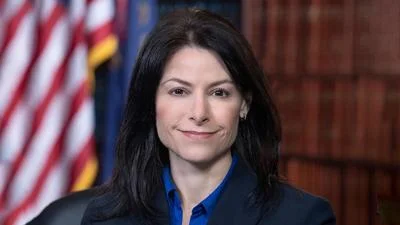Jim Holcomb, President & CEO at Michigan Chamber of Commerce | Michigan Chamber of Commerce
Jim Holcomb, President & CEO at Michigan Chamber of Commerce | Michigan Chamber of Commerce
The Michigan Supreme Court is considering a case that could alter how the state's consumer protection law applies to regulated businesses and professions. On Wednesday, the Court heard oral arguments in Attorney General v. Eli Lilly and Company, which challenges the “regulatory compliance exemption” under the Michigan Consumer Protection Act (MCPA).
Attorney General Dana Nessel is asking the Court to overturn two previous decisions—Smith (1999) and Liss (2007)—that have defined this exemption for more than twenty years. If these rulings are reversed, over 80 regulated industries and professions in Michigan may face increased legal risks. These include possible duplicate enforcement, inconsistent judicial decisions, class action lawsuits, treble damages, and higher legal costs.
The MCPA was enacted in 1976 to prohibit unfair or deceptive business practices and allows enforcement by state officials as well as consumers. However, it contains an exemption for actions “specifically authorized” by other regulatory bodies at the state or federal level. The Supreme Court previously interpreted this exemption broadly to avoid overlapping regulation and unnecessary litigation.
The Michigan Chamber of Commerce has played an active role in defending the current interpretation of the law. "Read our latest brief, which we coordinated with 14 other business and trade associations," stated the organization.
If the Supreme Court rules in favor of Attorney General Nessel, nearly every profession subject to state regulation could be exposed to lawsuits under the MCPA even if they already comply with oversight requirements. Affected sectors would include hospitals; real estate professionals; banks; accountants; insurance agents; builders; auto dealers; utilities; healthcare workers such as pharmacists and physicians; engineers; plumbers; funeral homes; investment advisors; manufacturers; telecommunications companies; casinos; cosmetic retailers; veterinarians; local governments regarding their services offered; railroads and airlines.
"If the Court sides with Nessel, every state-regulated business could face lawsuits under the MCPA. If it upholds precedent, the current protections for regulated industries stay intact," said a statement from the Michigan Chamber of Commerce.
There is no set deadline for when a decision will be announced, but opinions from this term are expected by late June or early July 2026.
For further information or questions about this issue, interested parties can contact info@michamber.com.






 Alerts Sign-up
Alerts Sign-up